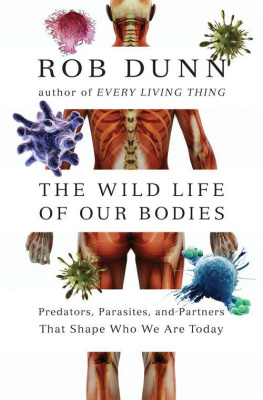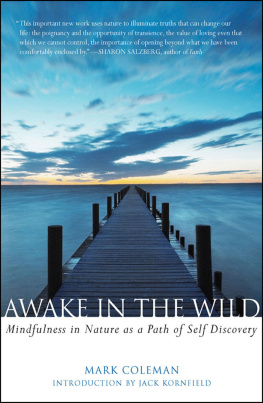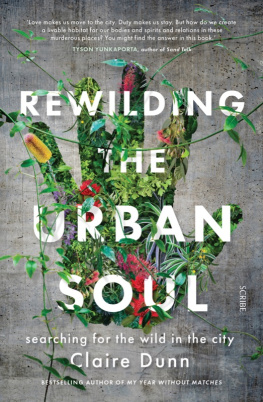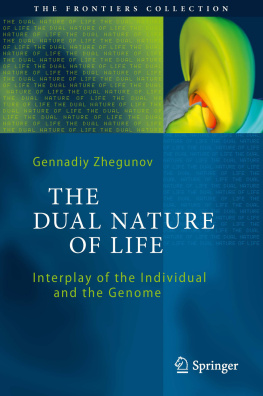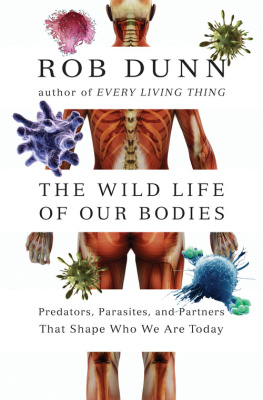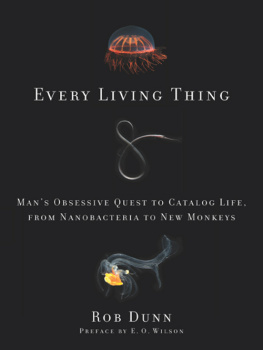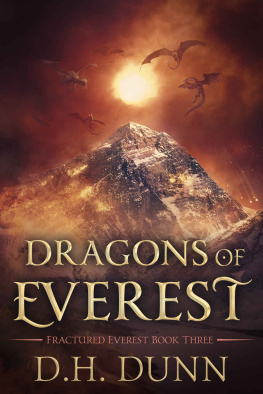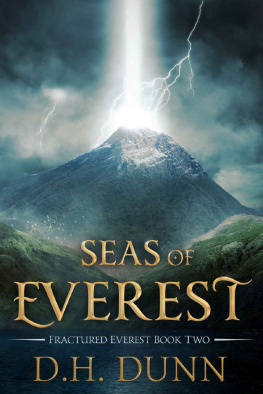The Wild Life of Our Bodies
Predators, Parasites, and
Partners That Shape Who
We Are Today
Rob Dunn

for Monica, my favorite wild life
Contents
S ome night, when the moon sneaks through your curtains and finds you still awake in bed, look beside you at your companion. (If you are alone, look at yourself.) Look at the fingernails, smooth beside the rougher skin, not unlike claws. Look at the hands, full of bones strung together by strings of tendons. Follow the bones just below the skin of the arm to the elbow and up along the beautiful shoulder to the neck that, at this moment, might seem to be the loveliest thing you have ever encountered. This body, composed of flesh and desires, evolved in the trees in Africa and Asia, where those nails helped cling to a branch to keep from falling to predators on the ground. You find yourself at this moment beside an animal that was, very recently, wild.
Some days we remember and feel our connection to what came before us. As we watch a chimpanzee on TV and see its gestures, kindnesses, and cruelties, we feel empathy. As we pick up a turtle in the road, we notice its legs, strange eyes, and a body not so unlike ours. We feel it moving in our hands like some deep muscle of life. But most days we are less aware of being part of a broader community of living species. We no longer see ourselves as part of nature.
Yet our history clings to us, whether we notice or not. In the last several years, dozens of new and separate discoveries by researchers in anthropology, medicine, neurobiology, architecture, and ecologyespecially ecologyhave made that much clear. The more we distance ourselves from our evolutionary history, the more we seem to feel the pull of uncut strings of our heritage. There are metaphorical or even spiritual ways in which we might ache for the past, but I mean something much more physical. I mean the ache that our bodies feel in being removed from the ecological context in which they existed for millennia. In being separated from the web of life with which we evolved, we are feeling effects, some good, others bad, but nearly all consequential, not just for how but even who we are.
We take our modern rituals of work and leisure for granted, and yet for nearly every bit of our history we lived outside, naked or nearly so. We sat, when we dared, on branches. We slept in nests made of sticks, mud, and smooth leaves. We roamed and foraged and knew about the landscape that was around us because we had to, because from its colorful fruits and treasures we ate and either lived or did not. In our transition to modern life, one can make long lists of the things our bodies might miss. It was not long ago that we still walked on four legs. Our bodies remain awkward standing straight. We run fast, but not so fast, and we do it by leaning forward toward that older gait. Our backs, as we sit all day, every day, pain us with our four-footed history. And as the eminent scientist Paul Ehrlich, author of The Population Bomb , put it, standing up also made it harder for us to sniff each other. So much for the good old days.
Biologists and philosophers have pondered for generations the ways in which our modern lives may be disconnected from our pasts, out of synch. We are haunted by this dissonance, as many have acknowledged, but what seems to have been relatively missed is the origin of the ghosts. They arise from changes in the species with which we interact. When you look beside you in bed, you notice no more than one animal (alternative lifestyles and cats notwithstanding). For nearly all of our history, our beds and lives were shared by multitudes. Live in a mud-walled hut in the Amazon, and bats will sleep above you, spiders beside you, the dog and cat not far away, and then there are the insects beating themselves stupid against the dwindling animal-fat flame. Somewhere near you, perhaps hanging in the palm roof, would be the drying herbs of medicine, a cooked and salted monkey hanging on a stick, and whatever else is necessary, all gathered or killed, all local, all touched and held and known by name. In addition, your gut would be filled with intestinal worms, your body covered in multitudes of unnamed microbes, and your lungs occupied by a fungus uniquely your own. Beyond the edge of the village, past the darkness between houses, would be an even wilder nature filled with insects flexing and scraping their parts together in song, trees falling to the ground, bats fighting among the fruit, and then, of course, the predators who walk silently along our paths, waiting to pounce.
So it is that the biggest difference between our modern human lives and the way we used to live is not the difference of housing styles and convenience (the transition from outhouse to penthouse). It is instead the change in our web of ecological connections. We have gone from lives immersed in nature to lives in which nature appears to have disappeared. Our disconnection from the nature in which we evolved is unprecedented in its extent and in its consequences.
We may love our new way of living, the bright lights and clean counters, the delicious food and the air-conditioningat least our conscious brains may. Meanwhile, our bodies continue to act as though they expect to meet our old companions, the species with which they tangled, generation upon generation, for tens of millions of years. Some of the ways we have distanced ourselves from other species are good; I do not miss smallpox. Other changes are neutral. They affect who we are, but not necessarily for the better or the worse. Many changes, though, are clearly bad. In recent years, for example, a new suite of diseases has begun to plague us. Sickle cell anemia; diabetes; autism; allergies; many anxiety disorders; autoimmune diseases; preeclampsia; tooth, jaw, and vision problems; and even heart disease are all becoming more common. More and more, these modern problems seem to be the consequence of changes not in levels of pollution, globalization, or even health care systems, but instead of changes in the species we interact with. It is not that we have lost particular species as much as that we have tried to remove whole kinds of lifeparasites, bacteria, wild nuts and fruits, and predators, to name a few. The loss of intestinal worms seems to be making many of our bodies ill, just as the circuits in our brains that evolved to deal with predators are now causing us to lose our minds. Our conscious brains have led us to clean our lives of the rest of nature, but the rest of our body, from our guts to our immune system, is having second thoughts.
The researchers studying different aspects of our disconnection from nature are in different fields. They do not tend to talk to one another, yet they have come to parallel conclusions about the extent of the consequences of our disconnection. An immunologist holds up our intestines and sees the consequences of having removed our worms. An evolutionary biologist looks at the appendix and notices what it had been doing in our bodies all along without being noticed. A primatologist looks at the neurons in our brain and sees the vestiges of predators. Psychologists look at our fears of strangers and our wars and see in them a mark, a kind of stigma, of changes in our exposure to disease. Each thinks they have discovered something important. They havehere I attempt to bring these stories together, weaving through them the common reality that our past haunts us. As I do, I try to step back to reveal the elephant in the room, or rather the effects of having removed the elephant from the room, along with worms, microbes, birds, fruit, and the rest of the most readily apparent life.
We all know about the biodiversity crisis, but the related crises resulting from changes in the kind of nature we interact with is similarly immediate. Whether lying in bed or sitting in front of your computer, when you ache, you ache with the history of your origin. You ache with the context you miss. The savannas and forests of our ancestry are still with you. They come to you, like the pain of a missing limb, when you sneeze, when your back aches, or when you are scared. They even come to you each time you choose what to plant, eat, or buy. This history comes to some more than others, but in one way or another, it comes to us all.
Next page
